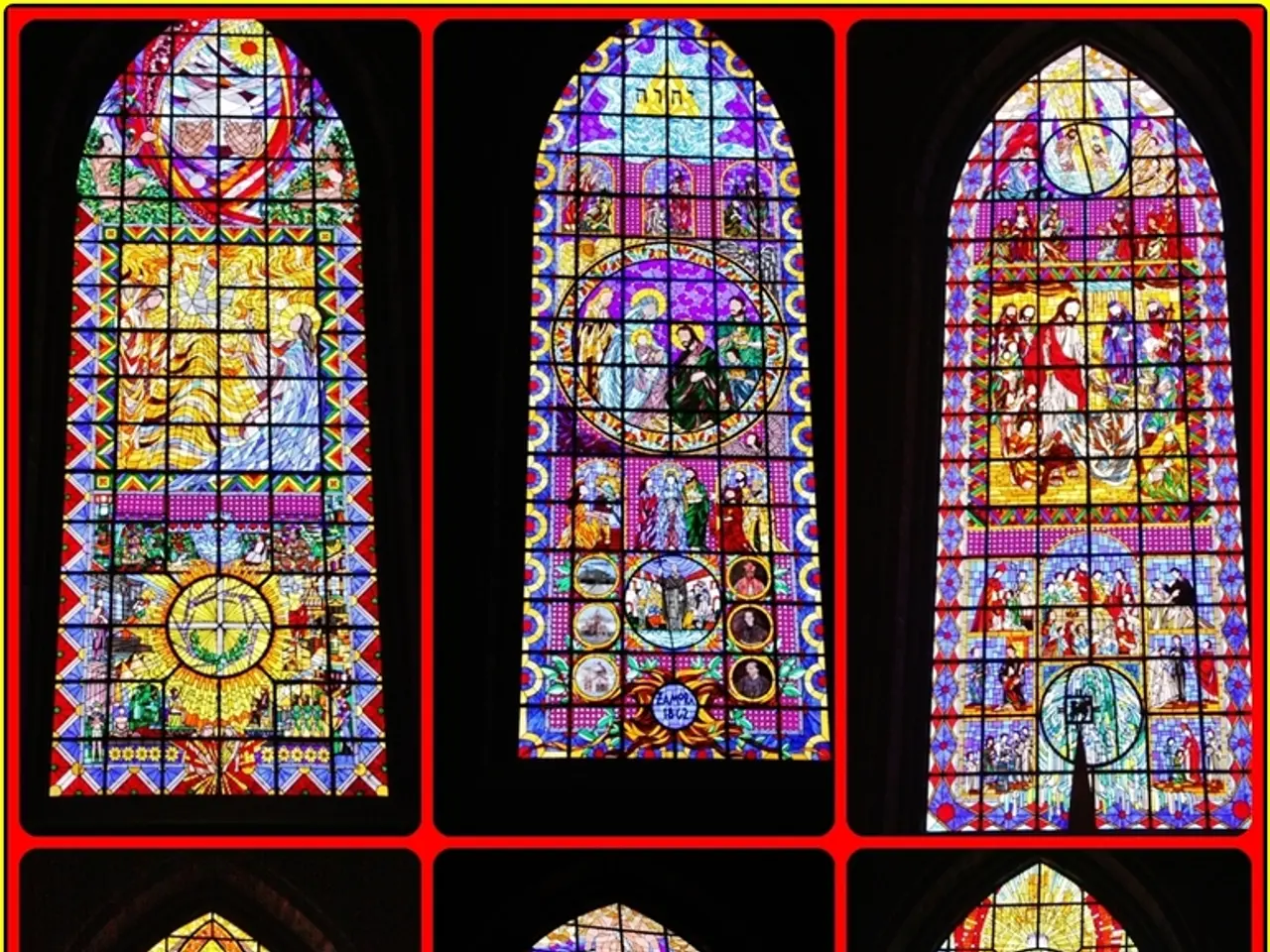Immutable Data Storage: Everlasting Data Achievable According to Hitachi
In a groundbreaking development, Hitachi's quartz glass storage technology promises to revolutionise the world of data storage. This innovative technology offers exceptional durability and long-term preservation potential, far surpassing current conventional data storage methods.
Quartz glass, with its stable, corrosion-resistant properties, provides a robust medium that can withstand extreme environmental conditions. This makes it highly resistant to heat, moisture, electromagnetic interference, and physical damage, contrasting sharply with traditional storage media such as magnetic tapes, hard drives, or optical discs, which are susceptible to heat, magnetic fields, and mechanical failures over time.
One of the key advantages of Hitachi's quartz glass technology is its potential to preserve data for millennia without degradation. While conventional media typically last from a few years (hard drives) to a few decades (archives on optical discs or magnetic tapes) under optimal conditions, the quartz glass medium offers a more durable solution.
Data stability is another significant advantage of this technology. Unlike current storage methods that rely on digital encoding on organic or metallic layers, which can fade or become unreadable, quartz glass stores data via laser-etched nano-structures, which are inherently more stable at the atomic level.
The implications of this technology are far-reaching, particularly in the realm of archival storage. With its ability to store critical records, cultural heritage, and data that must remain readable for centuries or longer, Hitachi's quartz glass technology could redefine how we think about preserving digital heritage.
Researcher Kazuyoshi Torii has expressed concern over potential losses of valuable information due to the limitations of current storage technologies. He believes that humanity's methods for preserving knowledge have not kept pace with technological advancements.
Other companies, such as Microsoft with its Project Silica, are also exploring the potential of quartz glass for data storage. The project aims to create a sustainable cloud archival storage solution using quartz glass, further validating the potential of this technology.
The quartz glass storage device is remarkably durable, capable of enduring temperatures up to 1,000 degrees Celsius (1,832 degrees Fahrenheit) for extended periods. It is also waterproof and resistant to various environmental threats, making it suitable for long-term archival storage.
The prototype quartz glass storage device measures just two centimeters square and two millimeters thick, demonstrating the compact nature of this technology. Research into quartz glass storage gained momentum in 2012 with Hitachi's development of a method to both record and retrieve data etched into the material.
The potential applications for this technology are vast, ranging from enhancing sustainability efforts and reducing operational costs in hyperscale data centers, to archiving sensitive information in industries like finance and healthcare.
Intriguingly, some believe ancient crystal skulls, like quartz glass storage devices, could be sophisticated data storage devices from long-lost civilisations. If the encoding method of the crystal skulls is rediscovered, it could potentially reveal profound truths about the past and future.
As the digital information proliferation is projected to exceed hundreds of zettabytes by 2025, the need for durable, long-lasting data storage solutions becomes increasingly crucial. Hitachi's quartz glass technology, with its exceptional durability and long-term preservation potential, provides a promising solution to this challenge.
[1] [2] [3] [4] [5] (Sources for specific technical comparison details or durability metrics for Hitachi’s quartz glass storage versus other methods were not found in the provided search results.)
- The evolution of data storage could be significantly impacted by the incorporation of data-and-cloud-computing technologies, such as Hitachi's quartz glass storage, which offer exceptional durability and long-term preservation potential, thereby addressing the concerns raised by researchers like Kazuyoshi Torii regarding the limitations of current storage technologies.
- In the healthcare industry, where the preservation of sensitive patient data is crucial, the adoption of long-lasting data storage technologies like Hitachi's quartz glass medium could lead to enhanced healthcare services, as it nearly eliminates the risks of data loss or degradation, a common issue in the traditional storage methods prevalent today.




